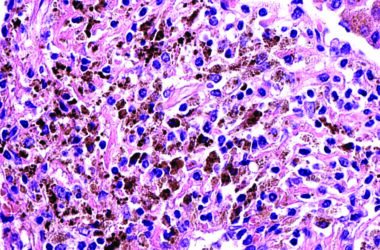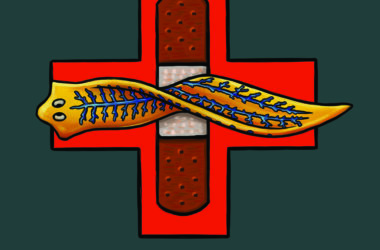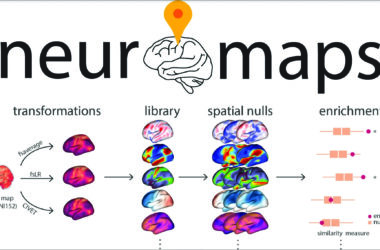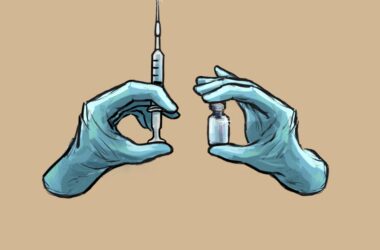Most students at McGill have encountered a vape pen: Whether they’ve taken a hit from someone’s JUUL at a party, walked through a cloud of grape-scented vapour in front of McLennan, or bought one from the depanneur on the corner. In Canada in 2021, 13 per cent of youth aged[Read More…]
Research Briefs
Alveolar macrophages, the lungs’ safeguard
Pulmonary infections—such as COVID-19 and the flu—in which bacteria or viruses enter and damage the lungs, are among the leading causes of death in older adults. Elderly people’s increased susceptibility to pulmonary infections is attributed mostly to immune systems that weaken over time. The initiation of immune responses to protect[Read More…]
Ball python pigmentation research is coloured in by crowdsourced data
When you think of genetics research, what animals first come to mind? Fruit flies? Mice? Our understanding of genetics is defined by a small number of model organisms—the ones used to study a particular biological phenomenon because of how similar their genes are to humans. Mice are the most common[Read More…]
The inextricable relationship between partner violence and HIV
Four decades into the HIV epidemic, the world is still struggling to keep the disease under control. While countries in the Global North have benefitted from access to life-saving drugs, those in the Global South have had to contend with exorbitant prices, barriers to access, and little help from pharmaceutical[Read More…]
Hold your breath, make a wish and count to 2.5
Air pollution from industrial processes, cars, and even forest fires means that the air we breathe contains numerous harmful particles and debris. Fine particulate matter, known as PM2.5, are tiny particles in the air released by both natural sources and human activities. Since The McGill Tribune last reported on this fine[Read More…]
Flatworm-inspired bioadhesives allow pressure-free hemorrhage treatment
Hemorrhages account for about two million potentially avoidable deaths around the world every year. With a 30 to 40 per cent rate of trauma mortality, the impact of hemorrhages worldwide cannot be understated. Yet, a group of researchers at McGill made a remarkable improvement in its treatment by developing bioadhesives[Read More…]
Penguin feathers and the ice cube tray effect
One thing that is always on the mind during a Montreal winter is the cold and, more specifically, the ice. Living in Montreal makes slipping on ice inevitable. A painful landing on your behind, however, is not the only inconvenience associated with this crystalline structure. The buildup of ice on[Read More…]
Introducing neuromaps, a Python toolbox for neuroscience research
A team of McGill researchers published a paper in Nature Methods showcasing neuromaps, an open-source Python toolbox that allows neuroscientists to analyze brain imaging data using a consistent set of tools and compare it with a curated brain-map database. PhD candidate Justine Hansen, one of the paper’s first authors, spoke[Read More…]
Pneumococcal vaccination coverage concerningly low among at-risk adults
In the past few years, we have all become intimately familiar with upper respiratory infections. With the annual cold, flu, and respiratory syntactical virus all on the rise, and the ever-present threat of COVID-19 looming over every crowded room, there is a lot to worry about during the upcoming winter[Read More…]
What’s in your water? This revolutionary AI technology breaks it down
Across the planet, corporations and municipalities account for over 30 per cent of accessible and renewable freshwater usage. They generate colossal amounts of wastewater containing various concentrations of elements such as copper, zinc, titanium, and mercury, which unfortunately make their way into our drinking water. Now, instead of worrying about[Read More…]















